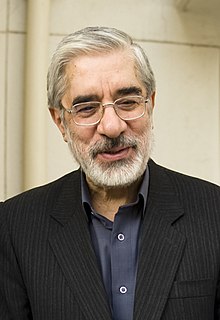A Quote by Annalee Newitz
There are definitely recurring themes in humanity's relationship with our environment. The biggest is probably adaptation, because humans are incredibly good at adapting to new environments in relatively short periods of time. The ancestors of Homo sapiens started leaving Africa over one million years ago, moving from warm, tropical climates into the freezing wilderness of Europe and the desert ecosystems of the Middle East.
Quote Topics
Adaptation
Adapting
Africa
Ancestors
Because
Biggest
Definitely
Desert
East
Ecosystems
Environment
Environments
Europe
Freezing
Good
Homo Sapiens
Humanity
Humans
Incredibly
Leaving
Middle
Middle East
Million
Million Years
Moving
New
New Environment
Our
Our Environment
Over
Periods
Recurring
Recurring Themes
Relationship
Relatively
Sapiens
Short
Short Period
Started
Themes
Time
Tropical
Warm
Wilderness
Years
Years Ago
Related Quotes
A few years ago, they [Neandertals] were thought to be ancestral to anatomically modern humans, but now we know that modern humans appeared at least 100,000 years ago, much before the disappearance of the Neandertals. Moreover, in caves in the Middle East, fossils of modern humans have been found dated 120,000-100,000 years ago, as well as Neandertals dated at 60,000 and 70,000 years ago, followed again by modern humans dated at 40,000 years ago. It is unclear whether the two forms repeatedly replaced one another by migration from other regions, or whether they coexisted in some areas
Some time ago we discovered the carbon cycle - a long-term set of chemical reactions that govern climates based on how much carbon is free in the atmosphere. At that point, it became clear that humans were affecting our environments far more profoundly than we realized. By releasing so much carbon and greenhouse gas into the environment, we're making long-term changes to every aspect of the natural world.
The humanity and the humility, which are very different than the biological species homo sapiens. Humanity versus homo sapiens - very different things. We are biological creatures, we are animals, no doubt, but when you talk about "humando," you're talking about that particular kind of animals who are aware of their impending extinction, who have the capacity to be sensitive to catastrophe and disaster and calamity and profound crisis.
What's changed is we now have good anatomical, geological, archaeological evidence that Neanderthals are not our ancestors. When I wrote 'Lucy,' I considered Neanderthals ancestors of modern humans. We have gone back twice the age of Lucy, six million years. And we see that upright bipedal walking goes back that far in time.
The BRIC countries - Brazil, India, China, Turkey, South Africa, Indonesia even, and Russia - are now new actors. Over the last eight years, China multiplied by seven its economic presence and penetration in the Middle East. And if this happens on economic terms and there is a shift towards the East, the relationship between these countries and Israel is completely different from the United States. And it means that the challenges are going to be different, because China is not supporting Israel the way the U.S. are supporting Israel.
In the modern era, Jewish sovereignty over the land of our ancestors is a relatively short phenomenon. From the time of the successful Maccabean revolt to the Roman annexation in 63 BC constitutes about 100 years of Jewish rule. Combined with Israel's independence in 1948, this is about 160 years of effective sovereignty.
More than 500 million years ago, vision became the primary driving force of evolution's 'big bang', the Cambrian Explosion, which resulted in explosive speciation of the animal kingdom. 500 million years later, AI technology is at the verge of changing the landscape of how humans live, work, communicate,and shape our environment.





























